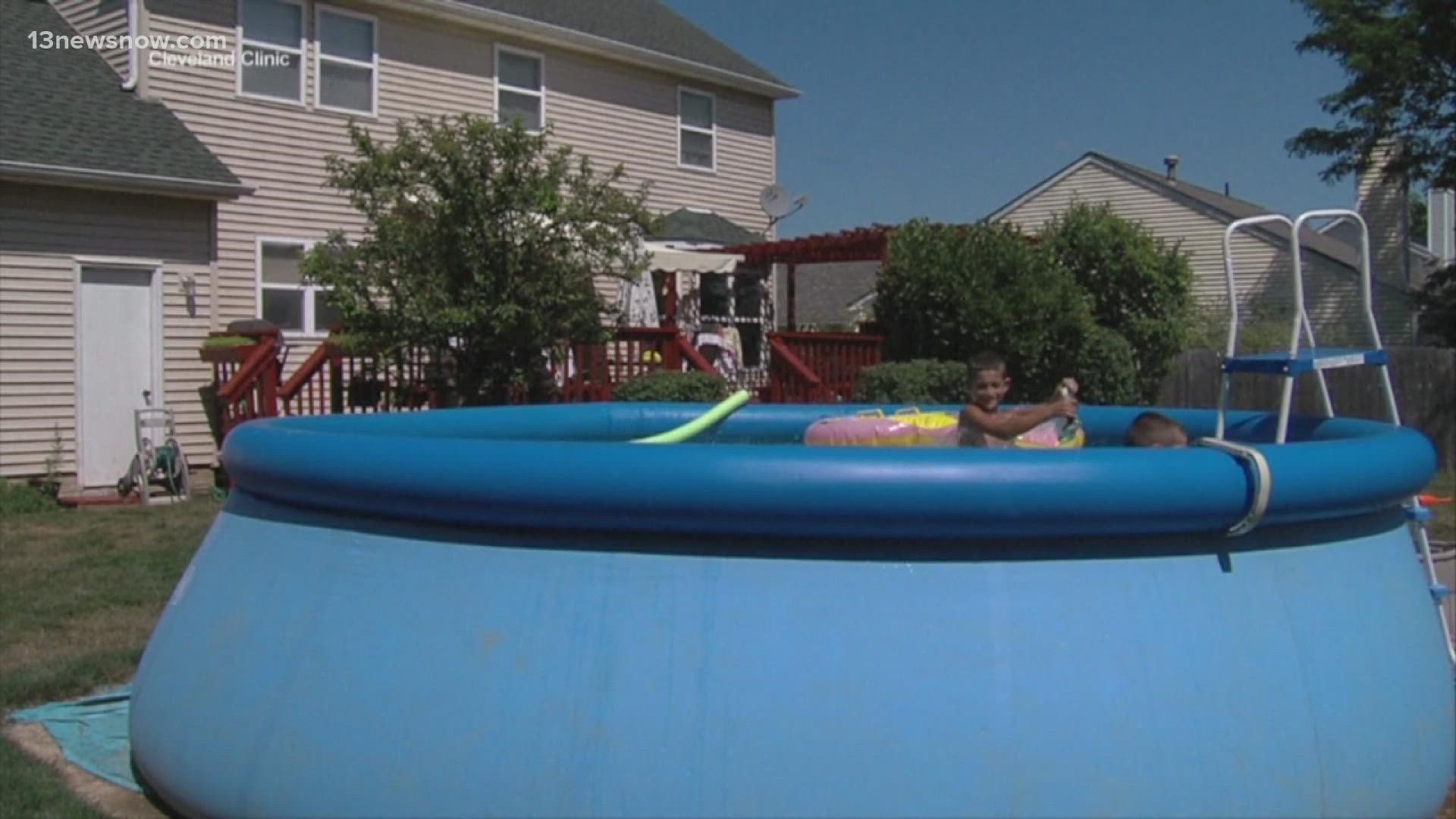NORFOLK, Va. — Because there's so much water around, swimming is one of the best ways to enjoy Hampton Roads in the summertime. But things can go wrong if you don't know how to swim.
According to the Centers for Disease Control and Prevention (CDC), there are an estimated 3,960 fatal unintentional drownings each year, including boating-related drownings. Nonfatal drownings, when a person survives a drowning incident with a range of outcomes, are estimated to be higher, at 8,080.
If you want to stay safe on the water, here are some ways to do so from the CDC:
Take swimming lessons
Studies show that formal swimming lessons can reduce the risk of drowning. But kids who have had swimming lessons will still need supervision when in or near water.
Keep an eye on the kiddos
Watch over children when they're in or near water, including bathtubs.
If you're watching kids in or near water, avoid distracting activities like reading, using the phone, and alcohol or drugs, because drownings can happen fast.
Use a life jacket out on the water
Life jackets reduce the risk of drowning while boating for people of all ages and swimming abilities. They should be used by children and weaker swimmers. Air-filled or foam toys don't count as safety devices.
Know the risks of natural waters
Lakes, rivers, and oceans have hidden hazards such as dangerous currents, waves, rocks, and vegetation. Limited visibility can be a problem, too. Before you head out, check the forecast. You don't want to get caught in bad weather.
Learn CPR
Knowing how to do CPR can save someone's life in the time it takes for paramedics to arrive. You can take a CPR training course with organizations like the American Red Cross and American Heart Association.
Reconsider drinking alcohol before swimming
Because alcohol impairs judgment, balance, and coordination, avoid drinking it before or during swimming, boating, or other activities involving water.

